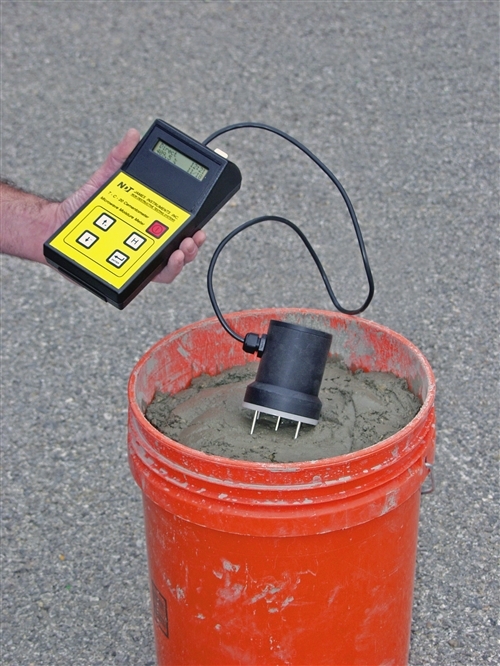The Ultimate Overview to Moisture Meters: A Comprehensive Introduction and How They Can Conserve You Cash
In the world of structure upkeep, construction, and various industries, the relevance of accurately measuring moisture degrees can not be overstated. Dampness meters serve as crucial tools in discovering and keeping an eye on moisture material in materials, helping in stopping pricey damages and making sure the high quality of products. Comprehending the nuances of various kinds of moisture meters, their applications, and the potential cost-saving advantages they supply can be a game-changer for specialists and organizations alike. Uncovering exactly how these devices can not just enhance procedures however likewise add to financial savings is a journey worth embarking on.
Sorts Of Moisture Meters
One usual kind is the pin-type moisture meter, which measures the electric resistance between 2 pins put into a product. Pinless moisture meters, on the other hand, usage electromagnetic sensor plates to check a bigger area without triggering damage to the product's surface area.
Additionally, there are also specialized wetness meters designed for details products like soil, hay, or grain. These meters give precise dampness analyses customized to the special homes of the product being evaluated. Infrared moisture meters measure the thermal residential properties of a material to establish its wetness web content non-invasively, making them valuable for applications where pin or pinless meters may not appropriate. Comprehending the different types of moisture meters offered can aid markets select the most ideal tool for their particular moisture measurement requirements.

Benefits of Making Use Of Moisture Meters

Moreover, utilizing moisture meters can lead to raised energy effectiveness. In farming setups, dampness meters play a vital role in maximizing crop returns by making it possible for farmers to keep an eye on soil moisture degrees and make informed irrigation choices.
How to Choose the Right Moisture Meter
Selecting the appropriate dampness meter entails taking into consideration key elements such as product compatibility, measurement array, and calibration precision. When choosing a dampness meter, it's important to make certain that the meter is suitable for the specific material you will be testing. Different materials have differing electrical residential properties that can influence wetness readings, so picking a meter developed for your material is critical for accurate outcomes. In addition, consider the dimension range of the dampness meter. Make sure that the meter can spot wetness degrees within the array required for your applications. Calibration accuracy is an additional vital variable to keep in mind (Moisture Meter). Select a dampness meter with trustworthy calibration to make certain precise and regular readings. Some meters may require regular calibration changes, so recognizing the calibration procedure is crucial. By carefully examining these factors, you can choose a dampness meter that satisfies your requirements and provides precise moisture dimensions for your jobs.
Appropriate Strategies for Moisture Meter Use
To make certain accurate wetness analyses and make the most of the effectiveness of a moisture meter, employing appropriate methods is necessary. When using a pin-type wetness meter, insert the pins or probes right into the material being checked till they make full get in touch with. By complying with these proper methods, customers can count on their moisture meter to supply trustworthy moisture levels, aiding in stopping pricey damage or ensuring top quality in numerous applications.

Price Financial Savings Through Moisture Meter Applications
Just visit how can the strategic use of wetness meters cause significant cost financial savings throughout various sectors? Moisture meters play a critical role in expense sites savings by avoiding potential damage and guaranteeing quality assurance in various sectors. In the farming sector, wetness meters aid in figuring out the optimal time for collecting plants, avoiding over-drying or excess moisture that can influence the final product's high quality. This precise surveillance assists farmers avoid unnecessary losses and optimize their return.

Additionally, in the food processing industry, moisture meters are crucial for keeping track of item top quality and making certain conformity with safety and security regulations. By accurately gauging dampness content in foodstuff, producers can avoid wasting, keep freshness, and decrease waste, resulting in significant price savings. In general, the strategic application of moisture meters is a useful financial investment that can bring about significant cost reductions and enhanced performance throughout different industries.
Conclusion
In final thought, dampness meters are useful devices for gauging and identifying dampness levels in different materials. By making use of the ideal moisture meter and adhering to appropriate techniques, individuals can successfully prevent expensive problems triggered by excess dampness.
Wetness meters serve as indispensable devices in identifying and keeping track of moisture material in materials, aiding in preventing costly problems and guaranteeing the top quality of items. Infrared dampness meters gauge the thermal homes of a product to determine its wetness content non-invasively, making them beneficial for applications where pin or pinless meters might not be suitable.Moisture meters use invaluable advantages in precisely keeping an eye on and assessing dampness levels in varied products and settings. In farming setups, wetness meters play a crucial duty in optimizing crop Clicking Here returns by making it possible for farmers to monitor soil dampness degrees and make educated watering choices.In final thought, wetness meters are valuable devices for determining and detecting dampness degrees in various materials.